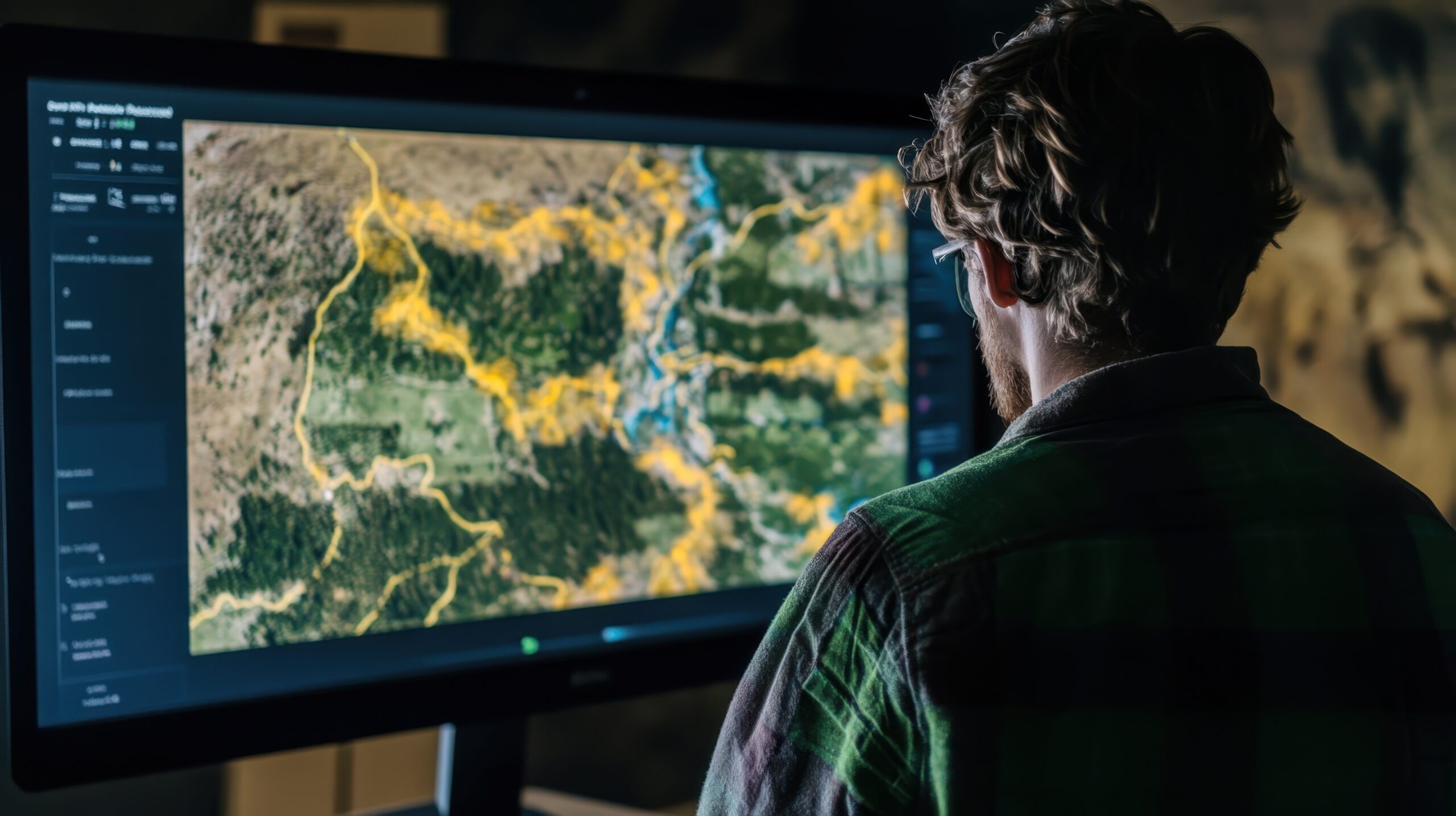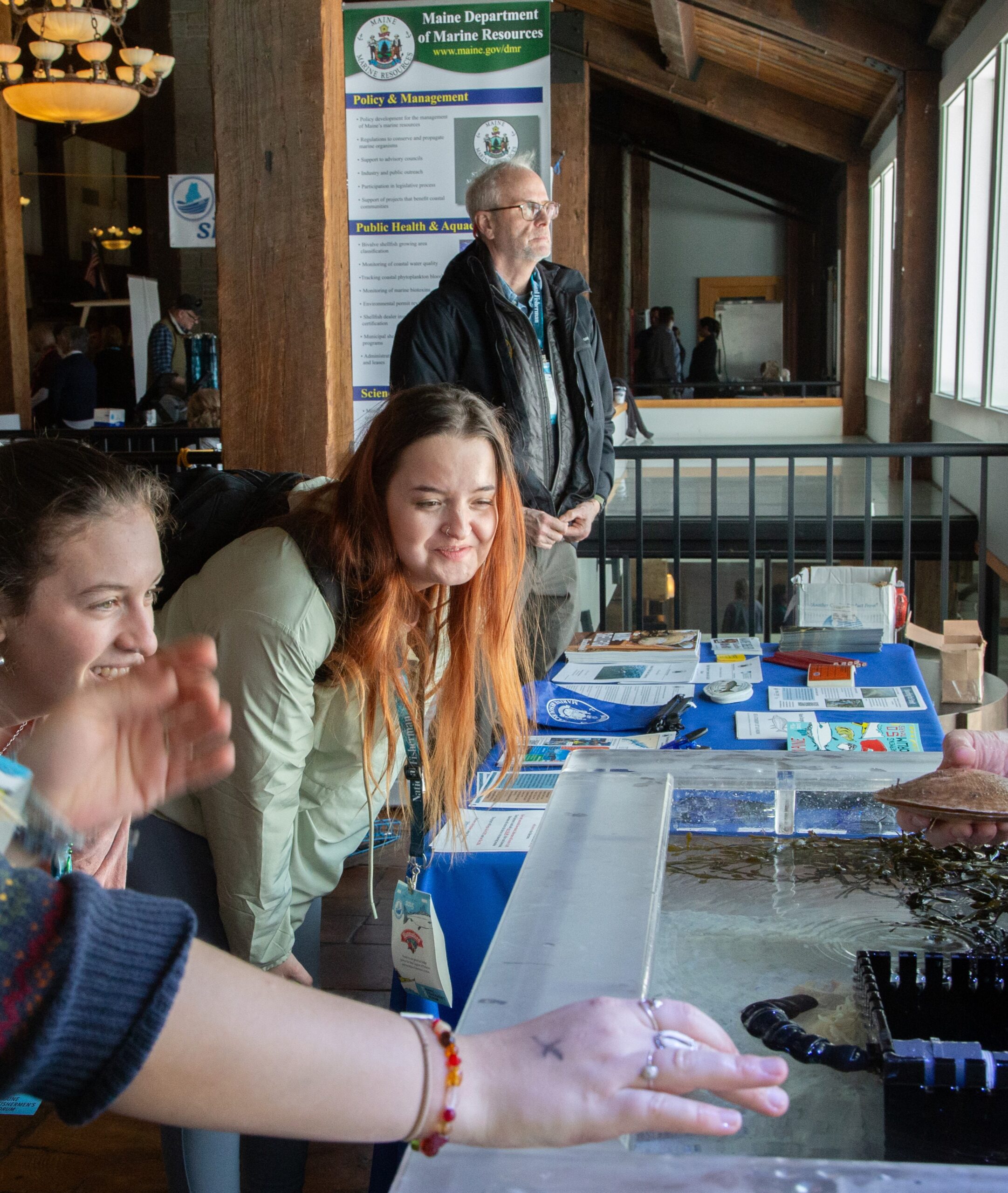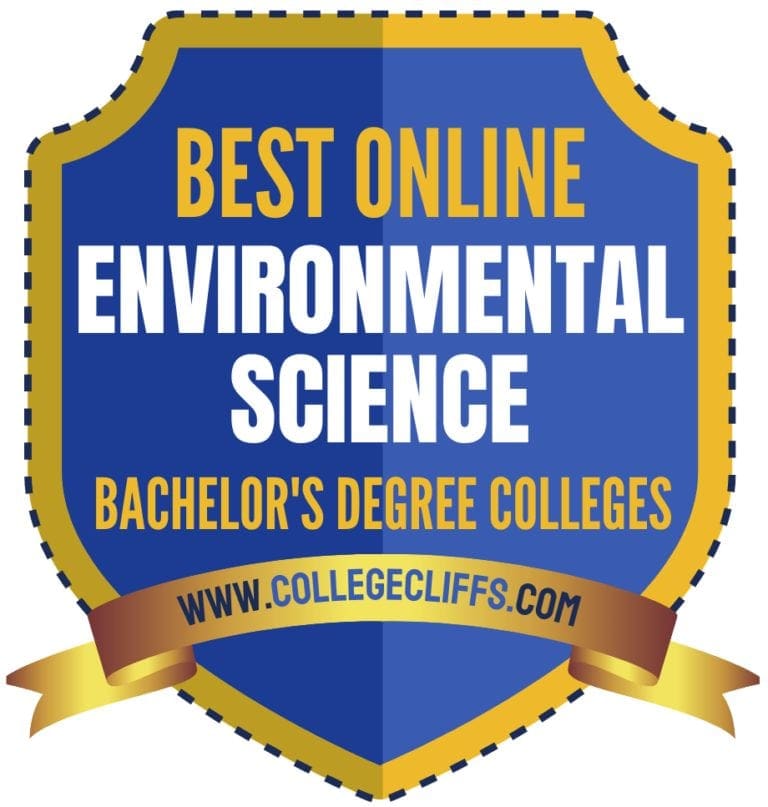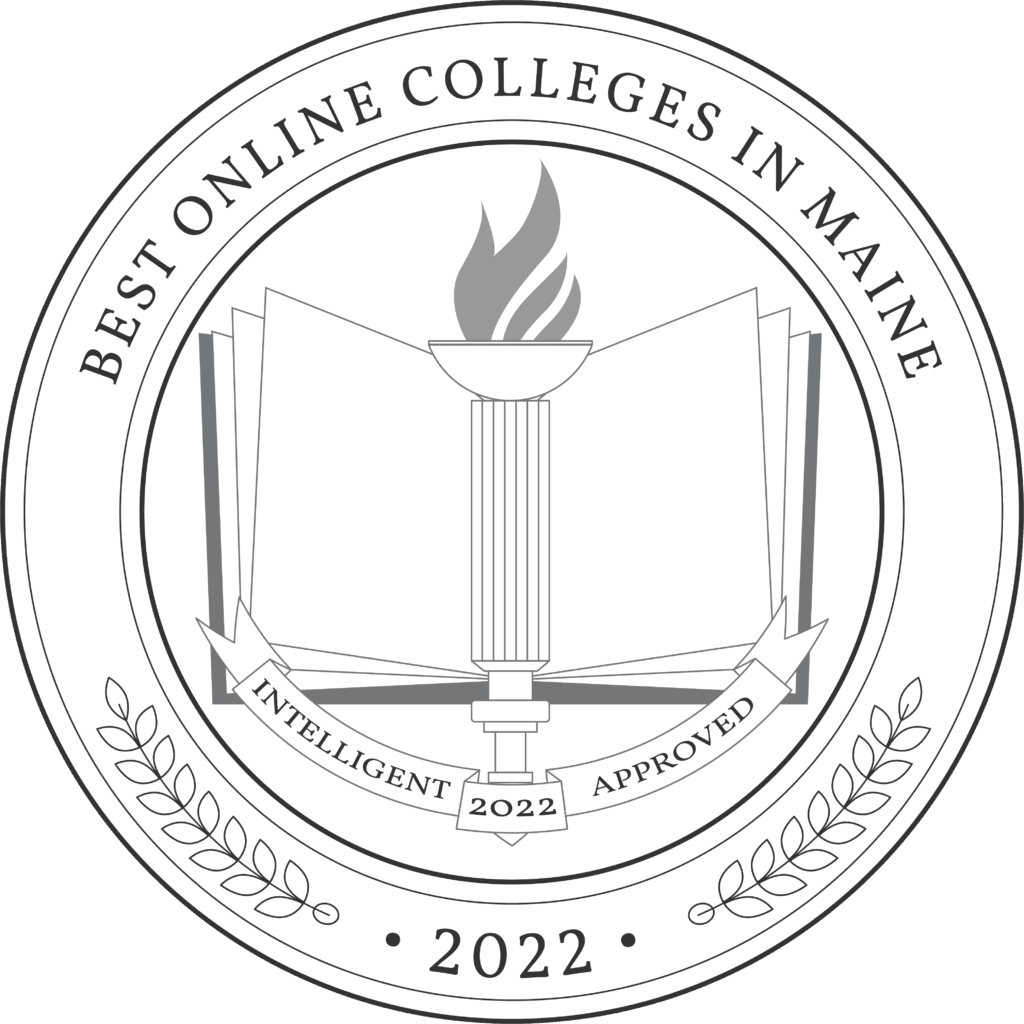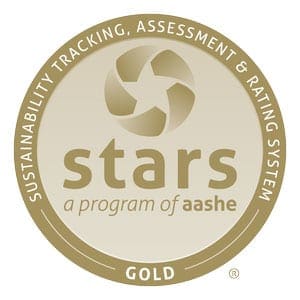Artificial Intelligence and Environmental Solutions
Artificial Intelligence and Environmental Solutions
Harness AI and data science to conquer environmental challenges
The Bachelor of Science in Artificial Intelligence and Environmental Problems is an interdisciplinary program designed to equip students with the knowledge and skills to address pressing environmental challenges through the application of artificial intelligence (AI) and data science.
This groundbreaking major seeks to cultivate a new generation of professionals capable of integrating artificial intelligence (AI) with environmental science to drive sustainable development and address pressing ecological issues.
The program integrates environmental science, sustainability principles, and advanced technological methodologies to foster innovative solutions for ecological preservation and resource management.
Artificial Intelligence and Environmental Solutions Experience Highlights
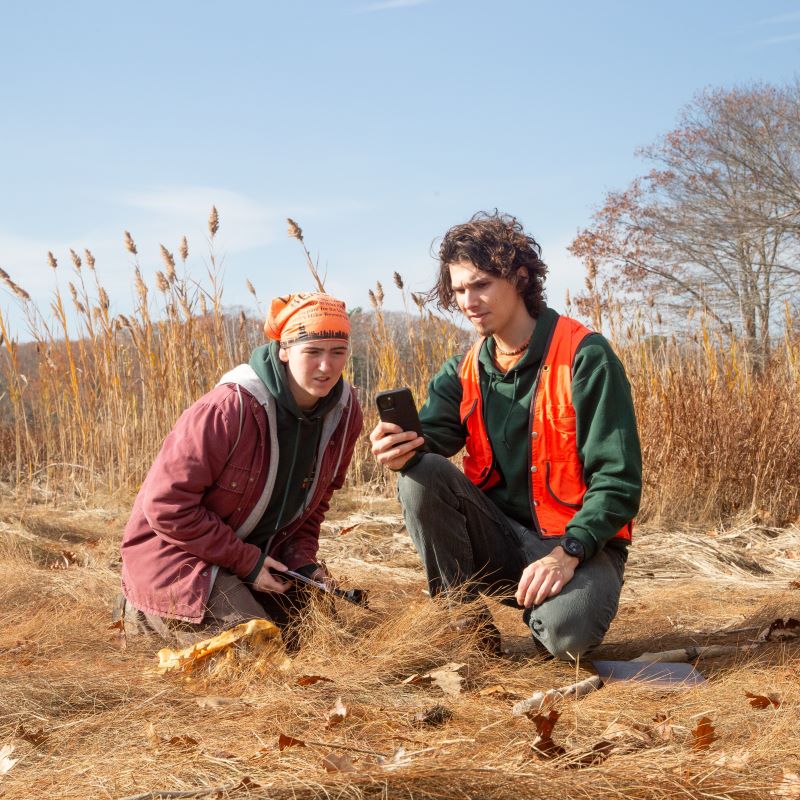


Lorem Ipsum
- Real-World Data Analysis – Work with large environmental datasets to uncover trends and solutions.
- Geospatial Technology & GIS – Use mapping tools to analyze and visualize environmental changes.
- Programming for Sustainability – Develop coding skills to build models for conservation and climate action.
- State-of-the-Art Facilities –Access high-tech labs and software for environmental data science.
- Interdisciplinary Approach – Combine environmental science with advanced tech skills.
- Career-Focused Learning – Prepare for roles in climate data analysis, conservation technology, and sustainability consulting.
With a curriculum rooted in sustainability and access to cutting-edge technology, graduates are ready to drive data-informed environmental solutions. This program prepares the next generation of tech-savvy problem solvers to make a lasting impact on our planet.
Course List
To earn a Baccalaureate degree in Artificial Intelligence and Environmental Solutions, you must complete:
- General Education Core: 44 credits
- Program Core: 42 credits
- Electives: 34 credits
University Wide Requirements: A minimum of 120 earned credit hours, 30 credits at the 300 level or above, a minimum of 30 credits earned at Unity, and an overall cumulative GPA of 2.0 or above.
General Education Core
ART 1001 Creative Expressions: Art and the Natural World | 3 Credits
Unleash your creativity and develop artistic skills as you engage with the intricate beauty of the natural world and explore and reflect on the forms, structures, and patterns of nature. This dynamic course emphasizes personal expression over technical perfection, ensuring a space for artistic exploration. Uncover how the environment can shape your artistic voice through a variety of traditional and digital art media and techniques. Through hands-on projects, demonstrations, and interactive activities, you’ll draw connections between art and science, fostering a deeper understanding of both. Communicate your vision and provide peer feedback in a supportive, in-person learning community, setting the stage for a future where art and ecological consciousness intersect.
Credits: 3
Prerequisites: None
BIO 1001 Nature’s Kaleidoscope: Exploring Life’s Diversity | 3 Credits
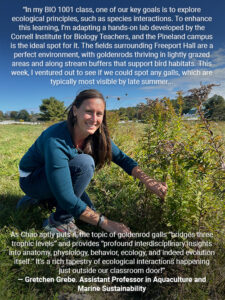 Explore the breathtaking diversity of life on Earth. In this course, you will delve into the realms of macroevolution, organismal structure and function, and the dynamic interactions within ecosystems. Through practical applications and cutting-edge industry practices, students will uncover the mechanisms of evolution and the intricate forms and functions of diverse organisms. This course integrates engaging hands-on activities, immersive fieldwork, and detailed case studies, equipping you with the skills and knowledge necessary to thrive as an environmental science and sustainability professional.
Explore the breathtaking diversity of life on Earth. In this course, you will delve into the realms of macroevolution, organismal structure and function, and the dynamic interactions within ecosystems. Through practical applications and cutting-edge industry practices, students will uncover the mechanisms of evolution and the intricate forms and functions of diverse organisms. This course integrates engaging hands-on activities, immersive fieldwork, and detailed case studies, equipping you with the skills and knowledge necessary to thrive as an environmental science and sustainability professional.
Credits: 3
Prerequisites: None
BIO 1002 Nature’s Kaleidoscope: A Laboratory Exploring Life’s Diversity | 1 Credit
Discover the wonders of biological diversity through Nature’s Kaleidoscope: A Laboratory Exploring Life’s Diversity. This course offers an immersive and interactive lab experience, revealing the intricate patterns and processes that shape life on our planet. Through hands-on experiments and engaging activities, you’ll explore the rich tapestry of life, honing your scientific inquiry skills. This course prepares you for careers in environmental science and sustainability by providing practical knowledge and laboratory expertise.
Credits: 1
Prerequisites: BIO 1001 (or concurrent enrollment)
CAR 1001 Essential Skills for Success and Career Planning | 1 Credit
This 1-credit course equips students with essential skills to excel in their studies and transition smoothly into their chosen careers. Students will engage in strategic goal setting and explore career paths using design thinking principles. Key activities include conducting industry research, participating in relevant career and industry events, and developing a personalized career plan. Additionally, students will gain valuable insights into critical thinking, self-advocacy, and effective use of campus resources.
Credits: 1
Prerequisites: None
CHM 1001 Chemistry in Action: From Theory to Practice | 3 Credits
Explore the fascinating world of chemistry, where you will dive into atomic theory, investigate the fundamental components of matter, master chemical bonding, and uncover molecular structure and reactivity. Additional emphasis is placed on nomenclature, stoichiometry, orbitals, electron configurations, the periodic table, intermolecular forces, aqueous solutions, and basic chemical reactions. Learn to balance chemical equations and explore key reactions such as acid/base, precipitation, and redox. This course equips students with essential knowledge needed to tackle the intricate environmental issues of tomorrow.
Credits: 3
Prerequisites: None
COM 1001 Rhetoric in Nature: Writing for Environmental Impact | 3 Credits
Immerse yourself in the art of effective communication, an essential skill for success in environmental and sustainability careers. This course blends interactive workshops with collaborative sessions that enhance your professional writing skills. Learn to craft compelling narratives, reports, and persuasive texts for diverse audiences, with a focus on organization, evidence-based writing, clarity, and cohesion. Develop strategies for drafting, revising, and refining your writing, and become a more impactful communicator ready for professional challenges.
Credits: 3
Prerequisites: None
COM 2001 EcoMedia: Storytelling for Sustainability | 3 Credits
Dive into the dynamic world of EcoMedia, where the power of storytelling meets environmental advocacy. EcoMedia uses various media platforms and communication strategies to inform, educate, and engage the public on environmental issues. Learn to craft compelling environmental narratives through social media, podcasts, video, and print, promoting sustainability and influencing public policy. Engage in hands-on projects that explore the transformative power of storytelling to shape public perceptions and drive positive environmental actions. Develop skills in media production, strategic communication, and ethical reporting to effectively convey stories. Prepare to become a persuasive advocate for the environment, equipped with the tools to make a meaningful impact through media.
Credits: 3
Prerequisites: None
COM 3001 Messages that Resonate: Creating Impactful Communication | 3 Credits
Elevate your communication skills to make a significant impact. Learn and apply sophisticated techniques for crafting persuasive messages and compelling campaigns. Engage in practical exercises and case studies to analyze and develop effective communication strategies. Gain expertise in leveraging digital tools, engaging with diverse stakeholders, and addressing complex ethical considerations. Develop essential skills to effectively convey your messages to diverse audiences, preparing you for success in today’s dynamic job market
Credits: 3
Prerequisites: None
ENV 1001 The Life Blood of Our World: Rivers, Lakes, and Streams | 3 Credits
Dive into the dynamic world of rivers, lakes, and streams! Discover the science and significance of freshwater ecosystems as you explore their endless diversity. Students from all programs discover how these vital water bodies are more than just scenic landscapes; they are the lifeblood of our ecosystems and societies. See firsthand through immersive field trips and interactive projects how these waterways support diverse wildlife, drive local industries and recreation, and play a crucial role in enriching communities. Inspired by the boundless opportunities for protecting and preserving our precious natural resources, this course prepares you to make a transformative difference in your future career.
Credits: 3
Prerequisites: None
ENV 2001 Environmental Resilience: Tackling Climate Challenges | 3 Credits
Dive into one of the most pressing and intricate challenges of our time – climate change. This course takes students on a journey to explore the profound effects of climate change on ecosystems, wildlife, and human societies, both locally and globally. Immerse yourself in climate data analysis, modeling, hands-on projects, and field experiences that equip you to address these challenges head-on. The course culminates with innovative strategies for climate mitigation and adaptation, empowering you to develop sustainable solutions and prepare for careers as environmental professionals. This course is not just about learning, it’s about making a difference in the world. Are you ready to take on the challenge?
Credits: 3
Prerequisites: None
EVJ 3001 Ethics at Work: Practical Approaches to Decision-Making | 3 Credits
Navigate the complexities of ethical decision-making, a crucial skill for creating a just and equitable world. Learn practical strategies, tools, and techniques to discern ethical implications and make informed decisions. Plunge into ethical philosophy to understand the foundations of ethical awareness and action. Engage with case studies to develop your ability to distinguish difficult decisions from true ethical dilemmas. Practice deliberating on a variety of ethical issues drawn from social and professional contexts, preparing to lead with integrity and make impactful, ethical choices in your career and beyond.
Credits: 3
Prerequisites: None
HIS 2001 The Past is Present: America’s Environmental History | 3 Credits
Immerse yourself in the dynamic narrative of America’s environmental history from pre-Colonial times to the present. Explore how human societies and natural environments have continuously shaped each other through pivotal events like the Dust Bowl and the environmental movement of the 1960s and 1970s. Engage with digital archives and artifacts to uncover ecosystem transformations, industrial impacts, and cultural shifts. Participate in hands-on activities, field trips, and real-world case studies that bring historical analysis to life. This course not only provides critical insights into the past but also equips you with the skills to address contemporary environmental challenges, preparing you for impactful careers.
Credits: 3
Prerequisites: None
INT 4001 Environmental Impact Internships: Career Pathways OR CAP 4001 Pioneering Change: Capstone in Environmental Solutions | 3 Credits
INT 4001 Environmental Impact Internships: Career Pathways
Embark on a transformative journey with the Environmental Impact Internship, where academic knowledge meets real-world practice. Envision yourself collaborating with seasoned professionals, addressing pressing environmental issues, and expanding your professional network. This internship experience provides a distinctive combination of practical experience and thoughtful reflection, equipping you wit the essential skills for a successful career. You’ll take charge of diverse tasks, strengthen your skills, and grow your potential as an environmental professional. This hands-on approach will also enhance your problem-solving and leadership skills in preparation for your future career.
Credits: 3
Prerequisites: 60 credits
May be taken more than once for up to twelve credits. All credits beyond three count as elective credits.
CAP 4001 Pioneering Change: Capstone in Environmental Solutions
Step into the final, thrilling phase of your academic journey with Pioneering Change: Capstone in Environmental Solutions. This course brings together the knowledge and skills you’ve acquired throughout your degree to confront real world environmental challenges. Working in diverse teams, you will develop impactful solutions and present them through a professional-grade project. This immersive experience hones your problem-solving and communication abilities, showcasing your readiness to potential employers to address critical environmental issues. Get ready to make a lasting impact on the world!
Credits: 3
Prerequisites: At least one 4000-level major core course and 60 credits. Or 90 total credits.
LDR 4001 Inspiring Action: Transformational Leadership Strategies | 3 Credits
Become a catalyst for positive change. Reflect on your personal leadership style, learn to build meaningful relationships, and understand the impact of leadership within complex systems. Through case studies in various sectors such as business, government, nonprofit, community, and education, examine organizational behavior and culture, and practice consensus building and project management to drive effective change. Develop practical tools that will empower you to navigate and lead effectively in your future career, ensuring you are equipped to inspire and manage transformational change.
Credits: 3
Prerequisites: 60 credits
MTH 2001 Data is Power: Drawing Insights from Statistics | 3 Credits
Unlock the power of data and develop insights into pressing environmental issues. Apply essential statistical tools to collect, analyze, and interpret data about real-world environmental challenges such as pollution, biodiversity, and climate change. Engage in hands-on exercises, case studies, and real-world applications crucial for environmental research, monitoring, and management. Gain proficiency in statistical software and data visualization to make meaningful impact in your career and contribute to sustainable solutions for our planet’s future.
Credits: 3
Prerequisites: None
PSY 1001 Mind Matters: An Introduction to Psychology | 3 Credits
Dive into the fascinating world of psychology, uncovering its historical roots and modern advancements. Explore the core subfields: biological, developmental, cognitive, social, and mental health. Develop the skills to critically evaluate psychological research and methodologies, empowering yourself as a knowledgeable consumer of psychological insights. Participate in engaging projects that integrate diverse psychological perspectives, deepening your understanding of human behavior. Gain essential transferable skills including critical thinking, problem-solving, effective communication, and a deep understanding of human behavior that are critical for success in any professional environment.
Credits: 3
Prerequisites: None
Program Core Highlights
AIE 2XXX Environmental Data and AI Decision-Making | 3 Credits
Get on the forefront of AI environmental solutioneering. This course will cover data-driven decision-making, predictive modeling, and real-time environmental monitoring using AI.
Credits: 3
Prerequisites: AIE 1XXX
MTH 3001 Sustainable Data Science | 3 Credits
This course will introduce the importance of gathering, cleaning, normalizing, visualizing, and analyzing data to drive informed decision making. In performing these tasks, students will learn to access and apply computer programming languages/tools, such as R, SQL, and Python, while working with real-world datasets and environmental crises.
Credits: 3
Prerequisites: MTH 2001
AIE 3XXX Ethical AI and Environmental Justice | 3 Credits
Artificial intelligence brings benefits, but also perplexing new ethical questions. This course does not flinch from addressing them. It examines ethical AI applications, bias in environmental algorithms, and AI’s role in equity-focused sustainability.
Credits: 3
Prerequisites: AIE 1XXX, EVJ 3001
AIE 3XXX Machine Learning for Climate Solutions | 3 Credits
This course explores the application of machine learning (ML) techniques to address climate-related challenges. Students will examine data-driven approaches for predicting climate trends, optimizing renewable energy systems, enhancing resource efficiency, and detecting environmental anomalies. Emphasizing ethical AI practices and interpretability, the course integrates real-world case studies, hands-on coding exercises, and collaborative projects.
Credits: 3
Prerequisites: AIE 1XXX, AIE 2XXX
AIE 4XXX AI for Climate Resilience and Adaptation | 3 Credits
Crown your immersion in artificial intelligence studies with investigations of the broader, system issues and uses of AI. This course analyzes AI applications in environmental, social, and governance (ESG) reporting and business strategy.
Credits: 3
Prerequisites: AIE 3XXX Machine Learning for Climate Solutions

